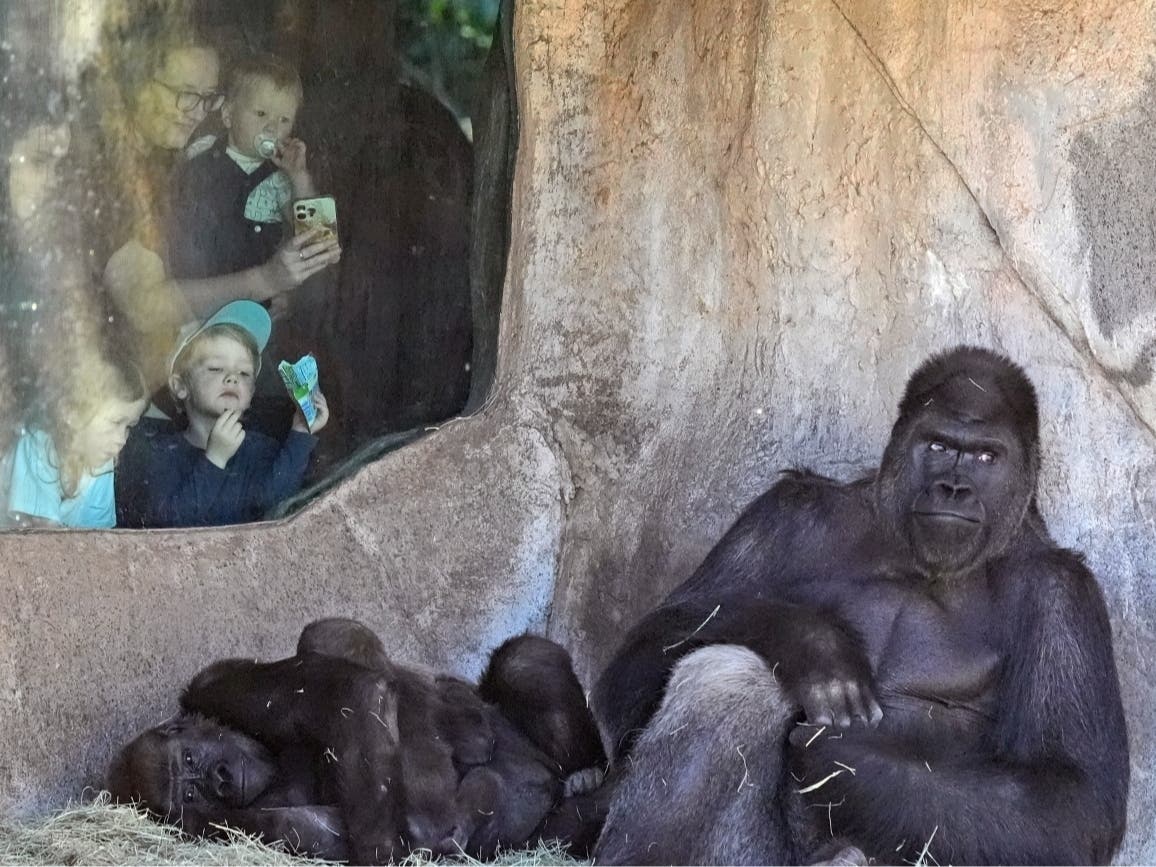Community Corner
April 8 Solar Eclipse Could Turn The World Upside Down For Animals
During the 2017 eclipse, captive gorillas marched to their night houses, giraffes galloped and tortoises swooned over each other.

ACROSS AMERIA — The animals at zoos experiencing totality during the total solar eclipse on April 8 could exhibit some bizarre behavior as the skies dim, including active breeding among a tortoise known for its slow moving, sedentary lifestyle.
Researchers at zoos across the country will keep a close eye on animals to determine if previously detected eclipse behavior repeats this year as the moon slips between the sun and Earth, and turns daytime to dusk.
Several zoos in the path of totality extending from Texas to Maine are inviting visitors to help track animals during the eclipse. Will tortoises start being romantic? Will giraffes gallop? Will apes sing odd notes? Those were among the behaviors noted among in animals during the 2017 solar eclipse at Riverbanks Zoo and Garden in Columbia, South Carolina.
Find out what's happening in Across Americawith free, real-time updates from Patch.
Adam Hartstone-Rose, a professor of comparative anatomy at North Carolina State University, and the lead author of a study published in the journal Animals, was skeptical animals would change their behavior much during the 2017 eclipse, reasoning at the time that when dark clouds pass overhead, they don’t react.
“To our astonishment, most of the animals did surprising things,” Hartstone-Rose told The Associated Press.
Find out what's happening in Across Americawith free, real-time updates from Patch.
Of 17 species studies, 13 changed their behavior, including eight species that settled into evening or nighttime routines. Gorillas marched together to their night houses, flamingos gathered around their babies and young, and giraffes began running around their quarters and only calmed down when the eclipse was over.
Of particular surprise, slow-moving Galapagos tortoises “that generally do absolutely nothing all day … all started breeding” at the peak of the eclipse,” Hartstone-Rose told The AP. Researchers don’t know why, and the upcoming eclipse gives them a chance to look more closely at the phenomenon.
The upcoming eclipse gives researchers a rare opportunity to study animal behavior more closely. This year’s eclipse occurs during a different season and crisscrosses a different route, giving researchers and citizen scientists opportunities to observe new habits.
“It’s really high stakes. We have a really short period to observe them and we can’t repeat the experiment,” Jennifer Tsuruda, a University of Tennessee entomologist who observed honeybee colonies during the 2017 eclipse, told The AP.
The honeybees that Tsuruda studied decreased foraging during the eclipse, as they usually would at night, except for those from the hungriest hives.
“During a solar eclipse, there’s a conflict between their internal rhythms and external environment,” University of Alberta's Olav Rueppell told The AP, adding that bees rely on polarized light from the sun to navigate.
- Read more: April 8 Solar Eclipse: What You Need To Know
Animals in the wild may change their behavior, too, very likely because the darkening sky can mimic short, fast-moving storms, Nate Bickford, an animal researcher at Oregon Institute of Technology, told The AP.
His analysis of data collected in the 2017 eclipse revealed bald eagles changed their flight speed and switched directions. So did feral horses, “probably taking cover, responding to the possibility of a storm out on the open plains,” Bickford said.
Andrew Farnsworth and his team of Cornell University researchers plan to test this by analyzing weather radar data — which also detects the presence of flying birds, bats and insects — to see if more birds take wing during the eclipse. Most songbird species also migrate at night, he noted.
“When there are night-like conditions during the eclipse, “will birds think it’s time to migrate and take flight?” he said.
As for indoor pets, they may react as much to what their owners are doing – whether they’re excited or nonchalant about the eclipse – as to any changes in the sky, said University of Arkansas animal researcher Raffaela Lesch.
“Dogs and cats pay a lot of attention to us, in addition to their internal clocks” she told The AP.
The Associated Press contributed reporting.
Get more local news delivered straight to your inbox. Sign up for free Patch newsletters and alerts.